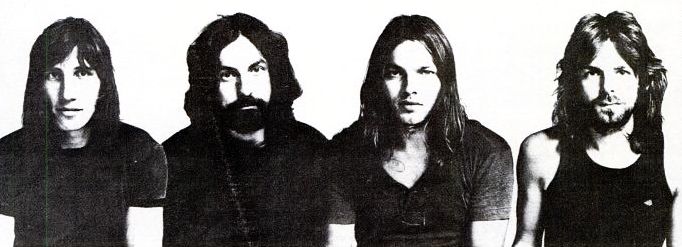|
The Dark Side Of The Moon (TV Series)
''The Dark Side of the Moon'' (russian: Обратная сторона Луны, translit=Obratnaya storona Luny) is a Russian detective television series, based on the BBC series ''Life on Mars''. Like the original series it was adapted from, although with the original script rewritten to better fit the Soviet era, the series combines elements of the genres speculative fiction and police procedural, featuring a present-day police captain from the Moscow City Police (played by Pavel Derevyanko) who wakes up in 1979 as his deceased father in the days of the Soviet Union after being hit by a car while in pursuit of a criminal in 2011. The title is a reference to the Pink Floyd album of the same name, owing to Pink Floyd's underground popularity in 1970s Russia. The show was produced by Sreda for broadcast on Channel One Russia, first airing on November 5, 2012. It was later renewed for a second season, which aired on December 5, 2016. Plot In 2011, Mikhail Soloviev Jr. (Pavel Der ... [...More Info...] [...Related Items...] OR: [Wikipedia] [Google] [Baidu] |
Crime Drama
Crime films, in the broadest sense, is a film genre inspired by and analogous to the crime fiction literary genre. Films of this genre generally involve various aspects of crime and its detection. Stylistically, the genre may overlap and combine with many other genres, such as Drama (film and television), drama or gangster film, but also include Comedy film, comedy, and, in turn, is divided into many sub-genres, such as Mystery film, mystery, suspense or Film noir, noir. Screenwriter and scholar Eric R. Williams identified crime film as one of eleven super-genres in his Screenwriters Taxonomy, claiming that all feature-length Narrative film, narrative films can be classified by these super-genres. The other ten super-genres are action, fantasy, horror, romance, science fiction, slice of life, sports, thriller, war and western. Williams identifies drama in a broader category called "film type", mystery and suspense as "macro-genres", and film noir as a "screenwriter's pathway" ... [...More Info...] [...Related Items...] OR: [Wikipedia] [Google] [Baidu] |
Pink Floyd
Pink Floyd are an English rock band formed in London in 1965. Gaining an early following as one of the first British psychedelic music, psychedelic groups, they were distinguished by their extended compositions, sonic experimentation, philosophical lyrics and elaborate Pink Floyd live performances, live shows. They became a leading band of the progressive rock genre, cited by some as the greatest progressive rock band of all time. Pink Floyd were founded in 1965 by Syd Barrett (guitar, lead vocals), Nick Mason (drums), Roger Waters (bass guitar, vocals), and Richard Wright (musician), Richard Wright (keyboards, vocals). Under Barrett's leadership, they released two charting singles and the successful debut album ''The Piper at the Gates of Dawn'' (1967). Guitarist and vocalist David Gilmour joined in December 1967; Barrett left in April 1968 due to deteriorating mental health. Waters became the primary lyricist and thematic leader, devising the concept album, concepts behind ... [...More Info...] [...Related Items...] OR: [Wikipedia] [Google] [Baidu] |
Fictional Portrayals Of The Moscow City Police
Fiction is any creative work, chiefly any narrative work, portraying individuals, events, or places that are imaginary, or in ways that are imaginary. Fictional portrayals are thus inconsistent with history, fact, or plausibility. In a traditional narrow sense, "fiction" refers to written narratives in prose often referring specifically to novels, novellas, and short stories. More broadly, however, fiction encompasses imaginary narratives expressed in any medium, including not just writings but also live theatrical performances, films, television programs, radio dramas, comics, role-playing games, and video games. Definition Typically, the fictionality of a work is publicly marketed and so the audience expects the work to deviate in some ways from the real world rather than presenting, for instance, only factually accurate portrayals or characters who are actual people. Because fiction is generally understood to not fully adhere to the real world, the themes and conte ... [...More Info...] [...Related Items...] OR: [Wikipedia] [Google] [Baidu] |
Channel One Russia Original Programming
Channel, channels, channeling, etc., may refer to: Geography * Channel (geography), in physical geography, a landform consisting of the outline (banks) of the path of a narrow body of water. Australia * Channel Country, region of outback Australia in Queensland and partly in South Australia, Northern Territory and New South Wales. * Channel Highway, a regional highway in Tasmania, Australia. Europe * Channel Islands, an archipelago in the English Channel, off the French coast of Normandy * Channel Tunnel or Chunnel, a rail tunnel underneath the English Channel * English Channel, called simply "The Channel", the part of the Atlantic Ocean that separates Great Britain from northern France North America * Channel Islands of California, a chain of eight islands located in the Pacific Ocean off the coast of Southern California, United States * Channel Lake, Illinois, a census-designated place in Lake County, Illinois, United States * Channels State Forest, a state forest in Virgin ... [...More Info...] [...Related Items...] OR: [Wikipedia] [Google] [Baidu] |
Television Series By Sreda
Television, sometimes shortened to TV, is a telecommunication medium for transmitting moving images and sound. The term can refer to a television set, or the medium of television transmission. Television is a mass medium for advertising, entertainment, news, and sports. Television became available in crude experimental forms in the late 1920s, but only after several years of further development was the new technology marketed to consumers. After World War II, an improved form of black-and-white television broadcasting became popular in the United Kingdom and the United States, and television sets became commonplace in homes, businesses, and institutions. During the 1950s, television was the primary medium for influencing public opinion.Diggs-Brown, Barbara (2011''Strategic Public Relations: Audience Focused Practice''p. 48 In the mid-1960s, color broadcasting was introduced in the U.S. and most other developed countries. The availability of various types of archival storag ... [...More Info...] [...Related Items...] OR: [Wikipedia] [Google] [Baidu] |


